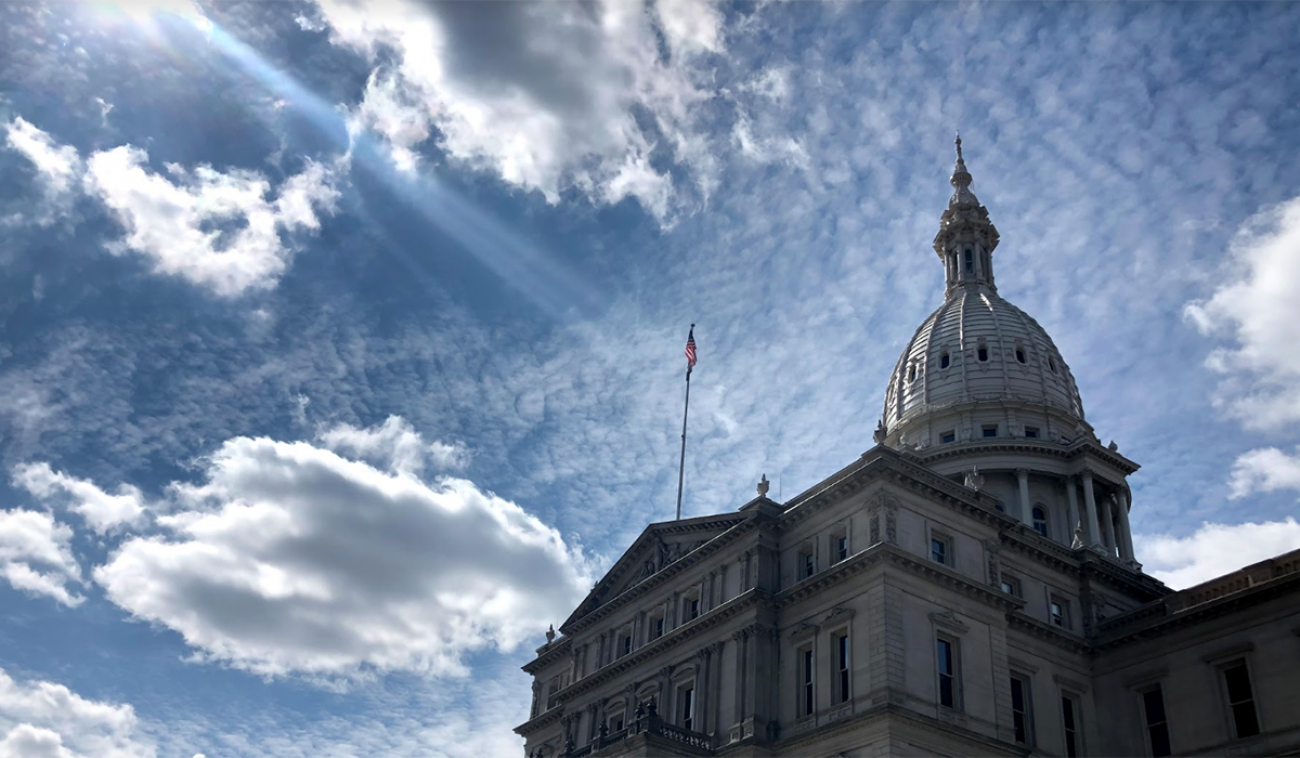Whitmer governs by ‘fiat,’ GOP argues in suit over Michigan pandemic powers

LANSING — Michigan Gov. Gretchen Whitmer has claimed legal authority she doesn’t have to “exercise expansive, all-encompassing, unilateral lawmaking power” during the coronavirus pandemic, a lawyer for the Republican-led Legislature argued Tuesday.
“And she has done it all with the bite of criminal sanctions behind it,” attorney Michael Williams said in arguments before the Michigan Court of Appeals, which is expected to issue a ruling by the end of the month in a case with sweeping implications for state government and public health.
The GOP-led Legislature sued Whitmer in May after rejecting her request for a second extension on an emergency declaration she issued in March when the state confirmed its first cases of COVID-19, which has since killed more than 6,000 Michiganders.
- As coronavirus cases rise, Whitmer halts plans to further reopen Michigan
- Michigan coronavirus unemployment, map, curve, COVID-19 updates
- Dashboard: Michigan coronavirus testing numbers, trends, COVID-19 data
Since the suit, the first-term Democrat has issued a new emergency declaration and continued issuing executive orders to fight the pandemic. To date, Whitmer has signed 161 orders, including business restrictions that GOP leaders have criticized, the “stay-at-home” order she lifted in June and ongoing mask orders.
Whitmer won the first round of the suit in May, when Michigan Court of Claims Judge Cynthia Stephens called the lawsuit "meritless" because state law gives the governor "sufficiently broad power" to respond to public crises like the pandemic.
The case, which is expected to reach the Michigan Supreme Court, focuses on two separate statutes that grant emergency powers to the governor during times of crisis.
The first, a 1945 law Whitmer has relied on for continued authority, allows governors to declare emergencies and "promulgate reasonable orders, rules, and regulations as he or she considers necessary to protect life and property or to bring the emergency situation within the affected area under control."
That law gives Whitmer clear power to respond to the public health emergency, Deputy Solicitor General Eric Restuccia said Tuesday. The 1945 statute allows Whitmer to issue emergency declarations without legislative approval, but it doesn’t confer “limitless power” because her decisions are still subject to judicial review, he argued.
“This pandemic is like a fire that’s continuing to rage,” Restuccia told the three Court of Appeals judges hearing the case. “The emergency remains ever present.”
But Republicans contend Whitmer’s powers are limited by a separate 1976 law that allows the governor to declare a state of emergency or disaster for 28 days and requires legislative approval for any extension beyond that date. They argue Whitmer violated that law by continuing the state of emergency after April 30.
Without the Legislature’s 28-day check on executive authority, Whitmer can “basically exercise fiat power throughout the state of Michigan for such time as she may determine,” Williams said Tuesday. Instead, Whitmer should work with the Legislature on a consensus response to COVID-19, he told the three-judge panel.
At issue are two interpretations of the 1945 law.
Republicans contend it gives governors the authority to declare local emergencies since the law explicitly refers to an “area,” section” or “specific zone” of Michigan. Whitmer’s lawyers say the statute, which refers to “great public crisis” and “disaster,” is broader in scope.
“Nothing in those concepts would suggest, ‘Oh, that can just be in, you know, the city of Alma,’” Restuccia said. “It could be the entire state.”
While the 1976 law is newer, which would seem to suggest it is more applicable, it includes a provision stating that it does not “limit, modify, or abridge” the governor’s authority under the 1945 law. And that could be problematic for the GOP case.
“I’m struggling” with that language,” Court of Appeals Judge Kristen Frank Kelly told Williams. “Our job is just to read the statutes and figure out what they mean, and it’s really clear. We can’t really add or subtract any language.”
Stephens, appointed to the Court of Claims by former Democratic Gov. Jennifer Granholm, expressed similar concerns when she sided with the governor in May.
The GOP-led Legislature appealed and requested expedited review by the Michigan Supreme Court, which declined to take up the case immediately but directed the Court of Appeals to rule by Aug. 21.
The panel now considering the case has a conservative lean. All three Court of Appeals judges, including Jane Markey and Jonathan Tukel, have Republican ties.
Health experts have rallied to Whitmer’s defense.
The Michigan Nurses Association union, in a recent court brief backed by 30 doctors and health care professionals, argued Whitmer’s emergency powers are “necessary” to continue fighting COVID-19. The GOP lawsuit could “limit the governor’s powers when they are needed most” and “lead to disastrous consequences,” wrote attorney Todd Mendel.
Another coalition of medical officials, including Flint pediatrician Mona Hanna-Attisha, told the appeals court that Whitmer’s orders have saved lives.
“Were this court to abruptly invalidate all of the governor’s emergency measures, including those focused on social distancing, the result might well be a resurgence of COVID-19, with peak disease rates potentially nearing or exceeding those experienced in the current outbreak,” wrote attorneys Jennifer McManus and Joshua Matz.
The high-profile case is among a series of state and federal lawsuits challenging Whitmer’s emergency authority and specific executive orders she has issued. The governor has prevailed in most instances, but several cases are ongoing.
U.S. District Court Judge Paul Maloney in June asked the Michigan Supreme Court to answer two related questions: Whether Whitmer has authority to continue issuing executive orders, and whether the 1945 or 1976 laws violate the separation of powers or non-delegation clauses of the Michigan Constitution.
Attorneys will argue those questions before Michigan justices on Sept. 2.
See what new members are saying about why they donated to Bridge Michigan:
- “In order for this information to be accurate and unbiased it must be underwritten by its readers, not by special interests.” - Larry S.
- “Not many other media sources report on the topics Bridge does.” - Susan B.
- “Your journalism is outstanding and rare these days.” - Mark S.
If you want to ensure the future of nonpartisan, nonprofit Michigan journalism, please become a member today. You, too, will be asked why you donated and maybe we'll feature your quote next time!




